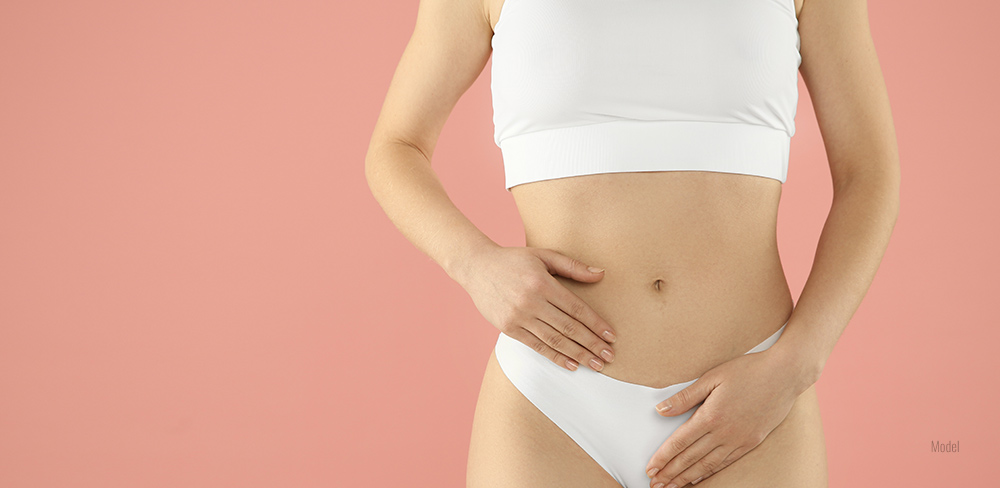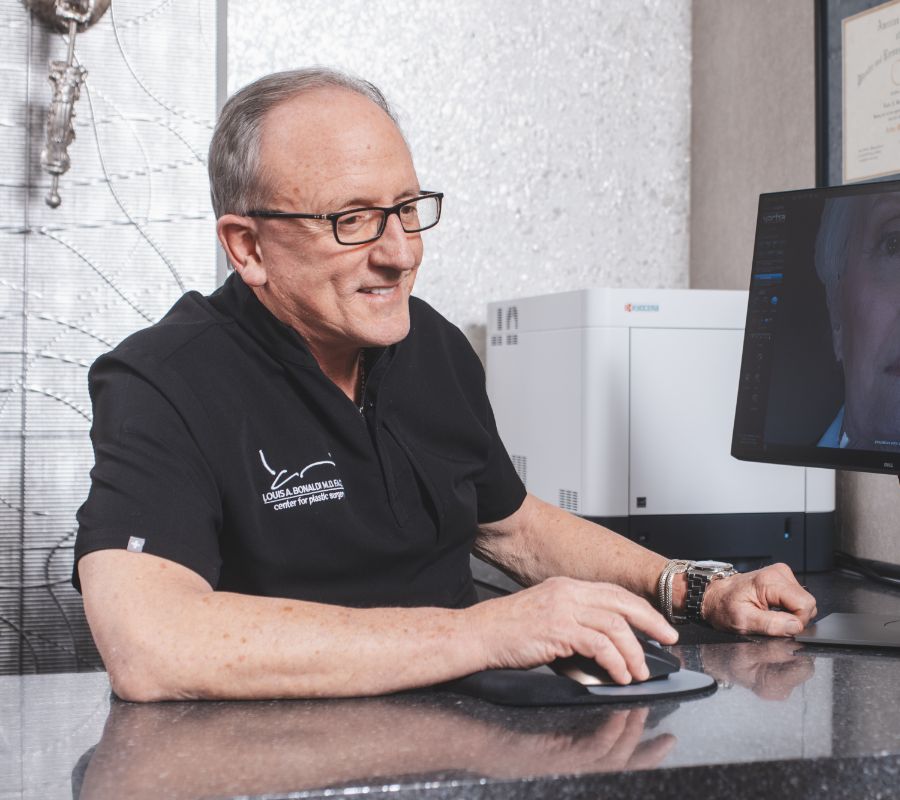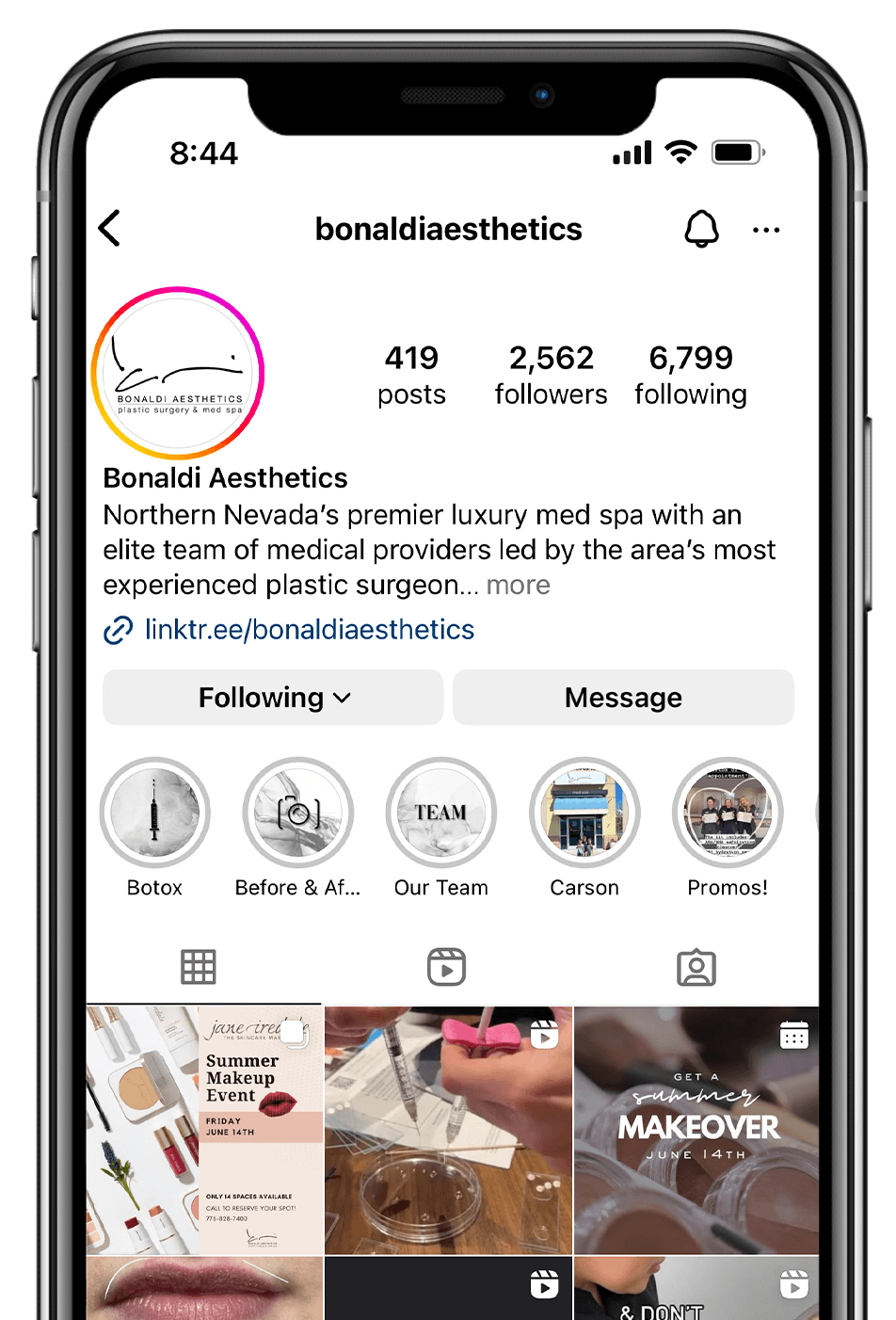June 05, 2024 | Body Contouring, Liposuction, Tummy tuck
7 minute read

For those who notice a troubling tummy pooch or pot belly, it’s essential to understand the distinction between abdominal fat and bloating. Belly fat—or visceral fat—refers to the excess fat stored around the abdomen and internal organs. On the other hand, bloating is characterized by feelings of fullness, tightness, and discomfort in the stomach, often accompanied by visible swelling or distension. This blog will explore the intricacies of bloating and belly fat and explain the difference.
6 Min Read:
The Dreaded Belly Bulge
No one likes to see their tummy pooch out for any reason, but the reasons for it may differ widely. Do you feel bloated and heavy, or are you concerned about a belly that is not as flat as you’d like? While excess skin is usually easier to identify as a problem, some people confuse bloating with abdominal fat. Whenever they see a change around their abdomen, they often just chalk it up to fat accumulation. Sometimes, it is. However, fat is not the only thing that can cause tummy expansion. It could be belly bloat.
So, what’s the difference between belly fat and belly bloat? Find the answer below.
What Is Belly Bloating?
Bloating occurs when the stomach becomes swollen with fluid or gas. Belly bloat is usually temporary and causes a person to feel uncomfortable and extremely full, even if overeating hasn’t happened. Common causes of bloating include overeating and consuming dairy products while lactose intolerant or lactose sensitive. Bloating can also be caused by other sudden diet changes, such as eating high-fiber foods, too much salt, chewing gum, or swallowing air.
Unlike eliminating excess fat and skin, which usually requires more surgical procedures, belly bloating can generally be dealt with using probiotics, eating fermented foods, drinking peppermint tea, and avoiding dairy products.
What Is Belly Fat?
Overeating may cause bloating in the short term but then later lead to more permanent abdominal enlargement. Belly fat refers to excess abdominal fat, usually caused by consuming more calories than the body can burn. This type of fat, in particular, is medically connected to an increased risk of certain health issues. Chronic diseases such as heart disease and type 2 diabetes are associated with more abdominal fat, which tends to accumulate over time due to factors like poor diet, a sedentary lifestyle, and hormonal changes.
What Causes Excess Skin?
While aging can cause skin to sag in several body areas, the most common cause is significant weight loss and pregnancy. After major or rapid weight loss and childbirth, the skin that once stretched to accommodate a changing body cannot retract fast enough and lays over areas like the breasts, arms, abdomen, hips, and thighs.
How Can I Tell the Difference Between Belly Bloating vs. Excess Fat and Skin?
Bloating Is Localized, While Belly Fat and Excess Skin Are Widespread
If one’s stomach is larger on a sudden, temporary basis, it’s likely due to bloating. Distinguishing between bloating and belly fat is relatively simple: bloating primarily causes the stomach to expand due to excess gas, while excess fat manifests as bulges across various areas such as the abdomen, thighs, hips, and back.
Bloating Is Tight and Slightly Painful
Simply put, fat doesn’t hurt. While belly fat is soft and spongy, in a Santa Claus or favorite stuffed animal type of way, a painful tightness in one’s abdomen is a distinguishing sign of bloating. Bloating commonly brings about physical discomfort because of the surplus buildup of fluid and gas in the abdomen. Conversely, belly fat typically doesn’t cause pain. Stomach fat will feel malleable and can be grabbed physically in your hand—pinching a literal inch or more. That can’t be done with bloating because the stomach is too tight to grab easily.
Bloating Fluctuates Widely
Fat is not easily shifted. It can take weeks or even months of dedicated exercise for belly fat to budge, and even with a healthy lifestyle, some pockets of stubborn fat will only shift with surgical procedures like liposuction. In contrast, with bloating, your stomach expands to accommodate a large celebration meal in a single day but can return to normal size in a matter of hours or a few days. Fat buildup and reduction are far more gradual.
Compare and Contrast Belly Bulging
While belly fat and bloating may share similarities in their manifestation, they have different underlying causes and require distinct management approaches.
- Bloating, often caused by digestive issues, food intolerances, or hormonal fluctuations, may benefit from dietary changes, stress management techniques, and targeted therapies.
- Belly fat, characterized by excess fat accumulation around the abdomen, is best addressed through lifestyle modifications such as diet and exercise.
- Excess skin, which is often caused by dramatic weight loss or pregnancy, is typically best dealt with using plastic surgery.
My Stomach Feels Heavy and Bloated
There are many reasons you might feel discomfort and find that your abdomen looks fuller due to bloating. If bloating doesn’t resolve within one or two days, review your diet, and if there haven’t been any changes, see your doctor.
Why Am I So Bloated? Top 7 Causes of Stomach Bloating
There are several causes of stomach bloating. The top seven include:
- Digestive Disorders: Gut conditions such as irritable bowel syndrome (IBS), gastroesophageal reflux disease (GERD), and inflammatory bowel disease (IBD) can cause bloating and discomfort in the stomach.
- Food Intolerances: Sensitivities or intolerance to certain foods, such as gluten, dairy, or FODMAPs (fermentable oligosaccharides, disaccharides, monosaccharides, and polyols), can trigger bloating and digestive distress.
- Poor Eating Habits: Consuming foods high in carbohydrates, fat, or fiber, sugar alcohols (low-calorie sweeteners), and carbonated beverages, and eating large meals too quickly can contribute to feelings of heaviness and bloating.
- Fluid Retention: High-sodium foods, medication side effects, or medical conditions such as kidney disease can lead to bloating and abdominal discomfort.
- Stress and Anxiety: Mental health is more connected to physical health than ever. Emotional stress and anxiety can exacerbate digestive symptoms and contribute to bloating and discomfort in the stomach.
- Gas Buildup: Gas produced during the digestive process can accumulate and ferment in the gastrointestinal tract, leading to bloating and discomfort.
- Hormone Fluctuations: Many people, especially women, suffer stomach issues from hormonal changes associated with menstruation, pregnancy, or menopause. These can contribute to bloating in some individuals.
Tummy Tuck and Liposuction for Excess Fat and Loose Skin
By understanding the difference between excess skin, belly fat, and bloating, individuals can take proactive steps towards achieving a flatter, more comfortable stomach and overall digestive wellness.
Although it’s essential to commit to a healthy lifestyle to shed excess fat and learn the cause of any bloating you experience, in certain cases, a body contouring procedure is needed to remove residual fat and tighten loose skin.
Some people have stubborn belly fat and excess skin that only liposuction and a tummy tuck can fix. Liposuction removes excess fat between the skin and the abdominal wall, but a tummy tuck removes excess fat and loose skin and also tightens the abdominal muscles. Combining both of these procedures allows you to achieve a harmonious and aesthetically pleasing silhouette that effectively addresses your concerns.
To achieve an even more comprehensive body rejuvenation, you can add cosmetic breast surgeries like an augmentation or a lift for a Mommy Makeover!
Learn More About Tummy Tuck and Liposuction in Reno, NV
Would you like to address your stubborn belly fat, excess skin, or both? Our Reno, Nevada, board-certified plastic surgeon has the experience and skill you want to deliver the results you desire.
Contact us today by calling 775-828-7400 or filling out our online form to learn more about your options.





